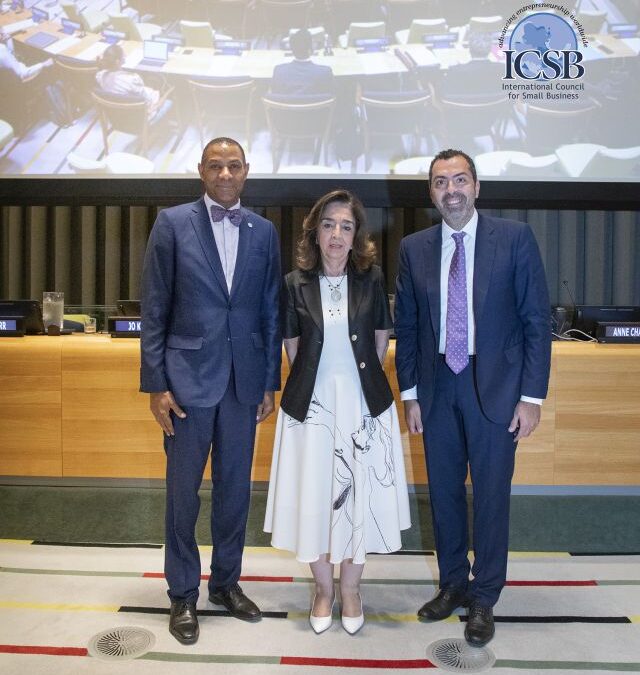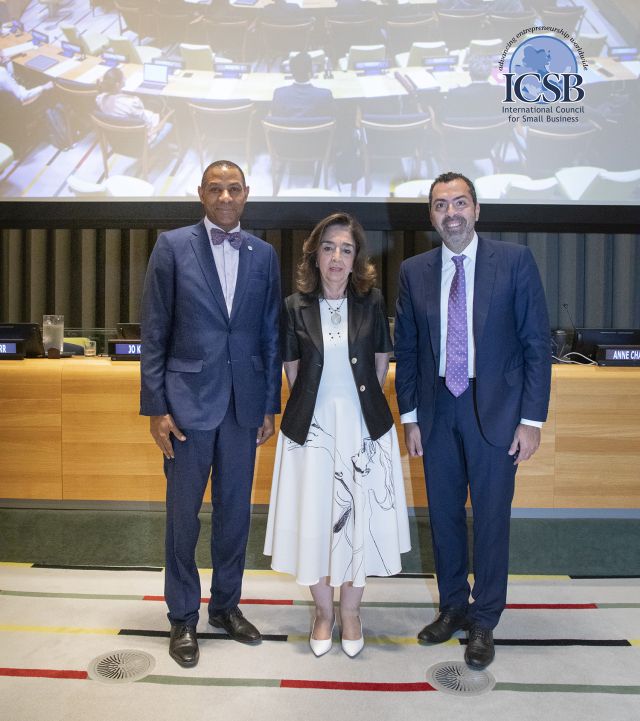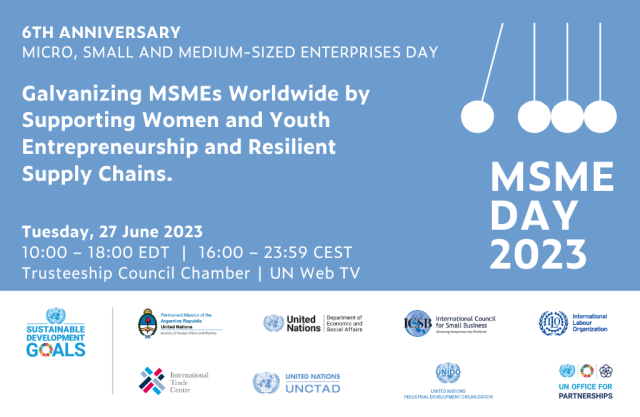
June272023
Jul 2, 2023 | Ayman Site, News | 1, News | 2, reflections, SME World Forum Site, The Latest, World Congress Site

Celebrating MSMEs Day:
Re-Live the Day via Photos and Vidoes
The United Nations MSMEs Day has concluded, leaving us inspired and invigorated by the collective commitment to support youth, women, and resilient supply chains. As we express our sincere appreciation to all who attended, it is essential to recognize the remarkable efforts of Argentina’s Mission, commend the invaluable contributions of our partners, and extend gratitude to Dr. Ayman ElTarabishy for his unwavering dedication to making MSMEs Day a focal point of collaboration and engagement.
Moreover, we are thrilled to announce that the event’s memorable moments can now be revisited through the availability of photos and videos.
Expressing Gratitude:
We extend heartfelt gratitude to all those who joined us for the UN MSMEs Day. Your presence, active participation, and commitment to supporting micro, small, and medium-sized enterprises (MSMEs) underline the importance of fostering inclusive and sustainable economic growth. Together, we are shaping a brighter future for MSMEs and empowering them to thrive.
Commending Argentina’s Leadership: We commend the Mission of Argentina for its exemplary leadership in championing MSMEs Day. Their dedication to advancing the theme of supporting youth, women, and resilient supply chains has resonated deeply, inspiring collective action and underscoring the crucial role of MSMEs in achieving sustainable development goals. Argentina’s Mission has set a remarkable precedent, and we are grateful for their vision and unwavering support.
Acknowledging Our Partners: We extend our heartfelt appreciation to all the partners who joined hands with us in making UN MSMEs Day a resounding success. Your collaboration, expertise, and resources have been instrumental in creating a meaningful and impactful event. We have fostered a global network of support for MSMEs and paved the way for inclusive and equitable economic growth.
Recognizing Dr. Ayman ElTarabishy: A special acknowledgment goes to Dr. Ayman ElTarabishy for his exceptional commitment and leadership in making MSMEs Day a focal point for all partners to join and engage. Dr. ElTarabishy’s unwavering dedication to advancing the cause of MSMEs has been instrumental in creating a thriving platform for knowledge-sharing, collaboration, and innovation. We are grateful for his tireless efforts in empowering MSMEs and advocating for their needs.
Photos and Videos: We are thrilled to announce that pictures and videos capturing the emotional moments of UN MSMEs Day are now available. Through this visual documentation, relive the inspiring discussions, insightful presentations, and engaging networking opportunities. These resources will serve as a reminder of the collective commitment and a catalyst for continued action in supporting worldwide MSMEs.
UN MSMEs Day has been an incredible testament to the power of collaboration and the collective commitment to youth, women, and resilient supply chains. As we express our gratitude to all who attended, we extend our deepest appreciation to Argentina’s Mission, our esteemed partners, and Dr. Ayman ElTarabishy for their unwavering dedication. Let us continue to build upon the momentum generated by this event and foster an environment where MSMEs can thrive and contribute to sustainable economic development.
UN MSMEs Day.
Photos of the Day (click here)
Concept Note
Agenda
Videos now available at UN Web TV:
Part I | Part II








